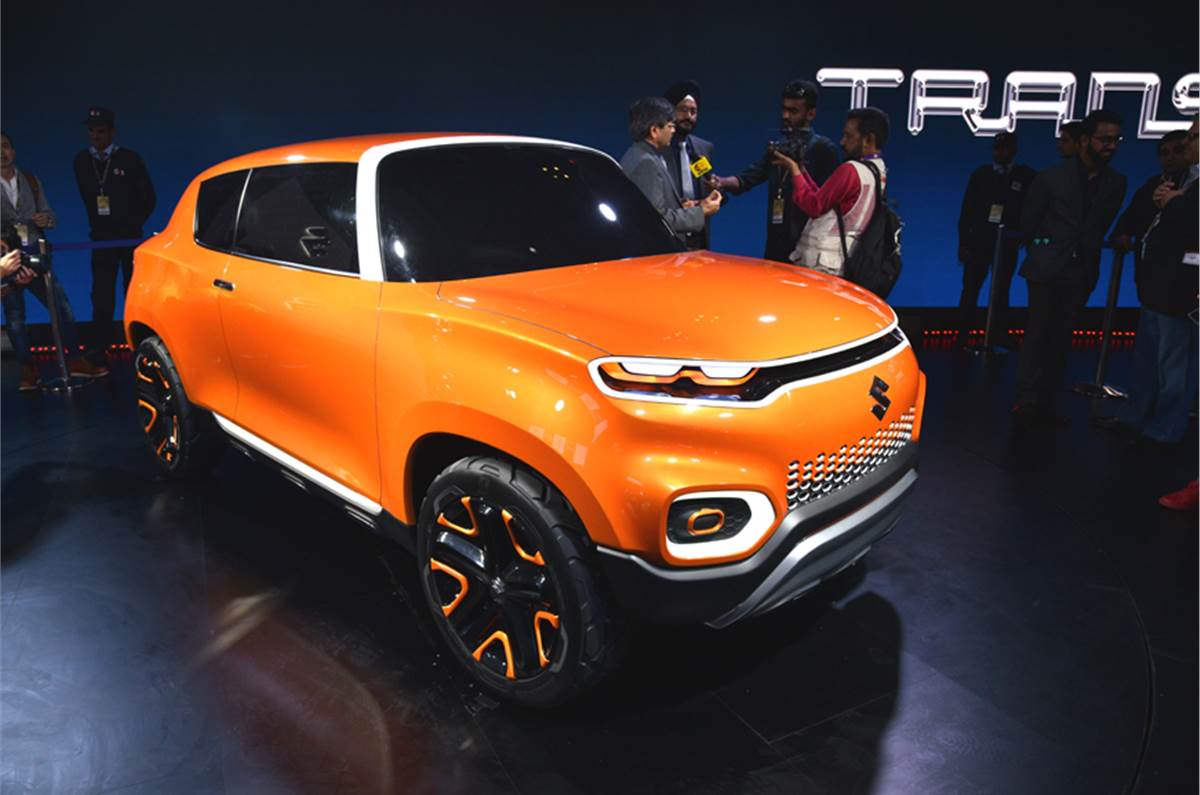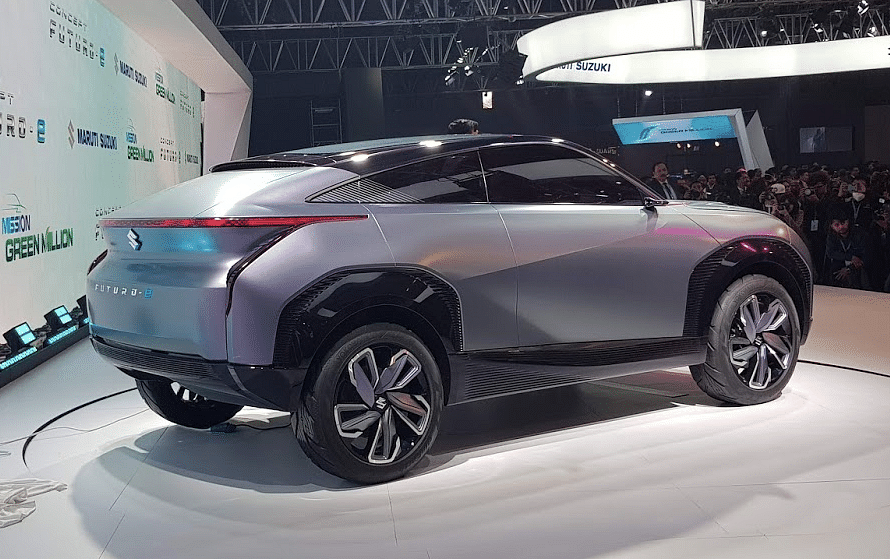Maruti 3.0 Unveils Ambitious Expansion: 28 New Models, Including Six EVs, Planned by FY31

Maruti 3.0 Unveils Ambitious Expansion: 28 New Models, Including Six EVs, Planned by FY31
Maruti Suzuki India, a leading car manufacturer known for its small cars, is embarking on a new phase called ‘Maruti 3.0.’ The company aims to expand its production capacity by adding another 20 lakh units in the next nine years. Chairman R C Bhargava revealed this plan, which involves introducing approximately 28 different models in the market by the fiscal year 2030-31.
With the growing popularity of SUVs in India and a slow recovery in demand for smaller entry-level cars, Maruti Suzuki is reorganizing its production facilities to align with future trends. The company is adapting to the changing market dynamics to remain competitive and meet the evolving preferences of Indian consumers.
Bhargava emphasized that while the Indian car industry may not experience the double-digit growth rates seen in China in the past, they are optimistic about maintaining a steady growth rate of around 6% until the fiscal year 2030-31.
According to Maruti Suzuki’s Chairman R C Bhargava, the company aims to add 2 million production capacity within the next nine years after successfully creating the first 2 million units over 40 years. Bhargava hinted at the possibility of structural reorganization to manage the challenges associated with producing 40 lakh units (4 million units) annually, and the company plans to announce its proposals soon.
Maruti Suzuki foresees the demand for exports to continue growing, and they project export volumes to be around 7.5 lakh to 8 lakh cars by the fiscal year 2030-31. The company’s expansion plans are driven by the need to meet domestic and export requirements, necessitating the addition of 20 lakh units of manufacturing capacity.

The company has already initiated work at the first site in Kharkhoda, Haryana, where a plant with a capacity of 250,000 units is expected to begin production in the first half of 2025. Subsequently, one similar plant will be added each year to achieve a total capacity of 1 million units. Additionally, Maruti Suzuki is selecting a second site to add another 1 million units of capacity by the fiscal year 2030-31.
In preparation for the increased production and the introduction of approximately 28 different models by the fiscal year 2030-31, the company acknowledges the need for organizational and system changes to effectively manage the sales of such a large variety of cars.
The ambitious expansion plans aim to capitalise on growing demand and strengthen Maruti Suzuki’s position in the Indian automotive market and beyond.
Maruti Suzuki, known for its small cars, is undergoing a strategic realignment as the demand for entry-level cars declines. The company is restructuring its production facilities to adapt to the current market realities and future projections. While the growth rate for hatchbacks and small cars is expected to be less than 2% annually, these vehicles will remain an essential part of Maruti Suzuki’s portfolio.
Despite the slowdown in this category, Maruti Suzuki remains committed to meeting customer needs in the small car segment and intends to provide the best possible offerings. The company holds a significant market share in this segment, accounting for about 70% of the almost one million cars sold annually in India.

Maruti Suzuki has introduced four well-accepted SUV models in the market and aims to assume leadership in this segment to capitalise on the growing demand for SUVs. The company plans to gradually increase its market share in the SUV segment, which has experienced a decline in the last few years.
Regarding the growth prospects of the Indian car market, Maruti Suzuki’s Chairman R C Bhargava expects a more moderate growth rate of 6% till FY 2030-31, compared to the double-digit growth experienced in China in the past. For FY 2023-24, the company anticipates a slightly higher growth rate, driven by rising domestic demand and improved export prospects. In the previous year, Maruti Suzuki’s exports reached 2,59,000 units, reflecting a positive trend in the export market.
Maruti Suzuki is making significant progress in developing electric vehicles (EVs) at its Gujarat facility. The company aims to commence the sale of its first EV model in the fiscal year 2024-25. Looking ahead, Maruti Suzuki has ambitious plans for the electric vehicle segment. By the fiscal year 2030-31, the company intends to have six EV models in its portfolio.
These electric vehicle models are projected to account for 15-20% of Maruti Suzuki’s total sales by 2030-31. The company recognizes the importance of embracing sustainable practices and reducing carbon emissions in the transportation sector. Maruti Suzuki aims to play a pivotal role in achieving carbon neutrality in the industry.

As per Chairman R C Bhargava’s statement, India’s unique conditions necessitate the adoption of a diverse mix of technologies that align with the country’s resource endowment and economic conditions. Therefore, Maruti Suzuki aims to develop and offer a wide range of EV models that cater to different customer needs and market segments.
By investing in electric mobility and sustainable technologies, Maruti Suzuki is positioning itself at the forefront of the electric vehicle revolution in India. As the demand for eco-friendly transportation solutions grows, the company’s EV models are expected to play a significant role in shaping the future of the Indian automotive industry.
Maruti Suzuki is taking a multi-pronged approach to reduce the carbon footprint and embrace sustainable practices in the automotive industry. Alongside the development of electric vehicles, the company is emphasizing using hybrid technology, ethanol, compressed biogas (CBG), and compressed natural gas (CNG) in its cars. Bhargava believes adopting a combination of these technologies will accelerate the efforts to reduce the carbon footprint compared to relying solely on one technology.
In the previous fiscal year, Maruti Suzuki achieved record turnover and profits, indicating its strong performance in the market. However, the ongoing global semiconductor shortage has affected the production of automobiles, including Maruti Suzuki’s vehicles. While the impact of the semiconductor shortage is still being felt, Bhargava remains optimistic that improvements will be made during the current year. However, he also points out that a complete return to normalcy in semiconductor supplies has yet to be expected.

Maruti Suzuki’s commitment to exploring a diverse range of technologies and sustainable solutions reflects the company’s determination to address environmental challenges and meet customers’ evolving needs. By combining efforts across various eco-friendly technologies, the company aims to play a crucial role in the transition towards greener and more sustainable transportation options in India.




